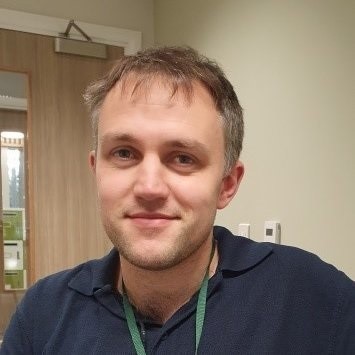Thomas Faulkner Explores Supportive Strategies for Young Onset Dementia

Dementia stands as a critical priority for both NHS England and the Government. Young onset dementia impacts around 119 out of every 100,000 individuals under 65 in the UK, highlighting a crucial opportunity for implementing compassionate and effective care strategies. Thomas Faulkner is an Assistant Psychologist at Mersey Care NHS Foundation Trust and an ARC NWC Intern. He has completed extensive research which offers valuable insights into these strategies.
Thomas Faulkner’s study is part of the ARC NWC Health and Care Across the Life course Theme and provides useful insights into the challenges faced by mental health professionals. It highlights areas where improvements can be made to better support younger individuals with dementia, aiming to enhance current practices.
Thomas said:
“Professionals often experience profound emotional and practical challenges when caring for younger onset dementia patients. Many of the people who have been diagnosed with Young onset dementia also have additional diagnoses such as anxiety and depression and have a wide range of needs and cognitive abilities. These experiences underscore the need for enhanced support systems and a tailored approaches.”
Thomas noted a growing commitment among professionals to improve training and resources, ensuring they are better equipped to meet diverse patient needs.
Thomas’s research marks significant progress in understanding and addressing the complexities of young onset dementia. By sharing these insights, he aims to foster a supportive environment for healthcare professionals, ultimately improving the quality of care for individuals affected by this challenging condition.
Thomas added:
“The diversity of conditions and support requirements among younger individuals necessitates adaptable and responsive care approaches,”
He pointed out that while resource allocation and regional disparities pose challenges, there is a clear path forward with the establishment of specialised care teams.
Thomas advocates for proactive professional development. “Investing in training not only enhances skills but also boosts confidence among caregivers,” he suggested. “Establishing specialised teams in every region can ensure consistent and effective support for patients and their families.”
Moreover, Thomas’ findings also address the profound impact on families and caregivers, particularly in reducing frustrations and improving quality of life. His research identifies practical strategies to alleviate the emotional and logistical burdens faced by parents and caregivers of younger individuals with dementia.
By advocating for enhanced support systems tailored to the unique needs of families, he aims to empower caregivers with resources and guidance essential for navigating this challenging journey.
“The role of our professional teams are crucial in the care continuum of young onset dementia,” Thomas emphasises. “Their resilience and wellbeing are paramount, and providing them with adequate support is not only beneficial for the caregivers themselves but also enhances the overall care experience for the patients.”
Thomas’s study underscores the importance of community-based support networks and accessible information for families. By promoting awareness and understanding among healthcare providers and the wider community, he seeks to create a more compassionate and inclusive environment that acknowledges and addresses the needs of families affected by young onset dementia.
The North West Coast (NWC) Living Lab in Ageing & Dementia was launched on March 6, 2024, at the University of Liverpool which Thomas is also now a Linking Pin in the NWC Living Lab in Ageing & Dementia with the Alzheimer’s Society.
The lab aims to bring together researchers and social care organisations in ageing and dementia to jointly develop research opportunities and improve knowledge and skills. Our model is based on the successful Limburg Living Lab in Long-term Care, which Maastricht University in the Netherlands has hosted for over 25 years.
Dr Clarissa Giebel, Tom’s supervisor expressed,“It’s been great to have seen Thomas develop his research skills from intern to now PhD student in young-onset dementia, joining our group! Being embedded still in clinical practice as Assistant Psychologist allows Thomas to be well connected to people with dementia and their families and understand their problems better.”
Thomas Faulkner’s research not only advances our understanding of young onset dementia but also advocates for comprehensive support systems that alleviate frustrations and enhance the quality of life for both patients and their caregivers. By bridging gaps in knowledge and practice, Thomas Faulkner’s work contributes to a more supportive and empathetic approach to dementia care in the UK and beyond.
Mersey Care and a local charity provide person-centred support for people with Young Onset Dementia, details of the group can be found here: Young onset dementia Support Group :: Mersey Care Charity (merseycares.org)
You can contact Thomas to learn about his work by emailing him:T.Faulkner@liverpool.ac.uk